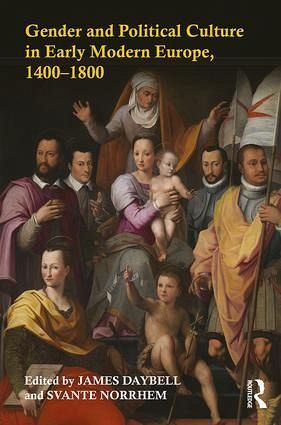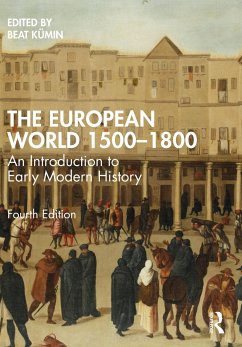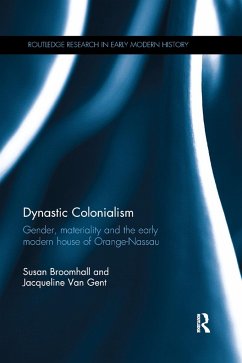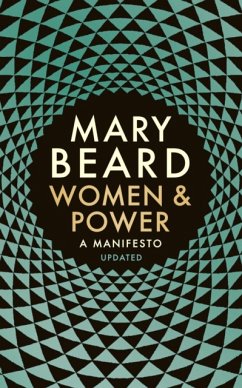
Broschiertes Buch
Gender and Political Culture in Early Modern Europe, 1400-1800
Versandkostenfrei!
Versandfertig in 1-2 Wochen

PAYBACK Punkte
30 °P sammeln!





Gender and Political Culture 1400-1800 investigates the gendered nature of political culture across early modern Europe by exploring the relationship between gender, power, and political authority and influence.
James Daybell is Professor of Early Modern British History at Plymouth University. His previous publications include The Material Letter in Early Modern England: manuscript letters and the culture and practices of letter-writing, 1512-1635 (2012) and (as editor) Women and Politics in Early Modern England, 1450-1700 (2004). Svante Norrhem is Associate Professor of History at Lund University. His previous publications include Flattering alliances: Scandinavia, diplomacy and the Austrian-French balance of power, 1648-1740 (with Peter Lindström) .
Produktdetails
- Verlag: Taylor & Francis
- Artikelnr. des Verlages: Y230480
- Seitenzahl: 260
- Erscheinungstermin: 18. Juli 2016
- Englisch
- Abmessung: 234mm x 156mm x 14mm
- Gewicht: 402g
- ISBN-13: 9781138667426
- ISBN-10: 1138667420
- Artikelnr.: 44917106
Herstellerkennzeichnung
Libri GmbH
Europaallee 1
36244 Bad Hersfeld
gpsr@libri.de
"Daybell and Norrhem have provided a set of studies that are at once wide-ranging, and tightly connected by the issues of women's often-overlooked roles in the exercise of power. This will be a valuable volume for undergraduates, graduates, and scholars alike, addressing issues of archives, material culture, the varieties of "soft" power, and global comparisons, which in total builds a compelling case for the centrality of gender and women's roles in ruling."
- James Coons, Miami University, USA
"Established researchers and student-scholars alike, and particularly scholars of women's history, will relish this book for its wealth of information, clarity of writing, and new archival findings."
- Goran Stanivukovic, Renaissance and Reformation
- James Coons, Miami University, USA
"Established researchers and student-scholars alike, and particularly scholars of women's history, will relish this book for its wealth of information, clarity of writing, and new archival findings."
- Goran Stanivukovic, Renaissance and Reformation
Für dieses Produkt wurde noch keine Bewertung abgegeben. Wir würden uns sehr freuen, wenn du die erste Bewertung schreibst!
Eine Bewertung schreiben
Eine Bewertung schreiben
Andere Kunden interessierten sich für











